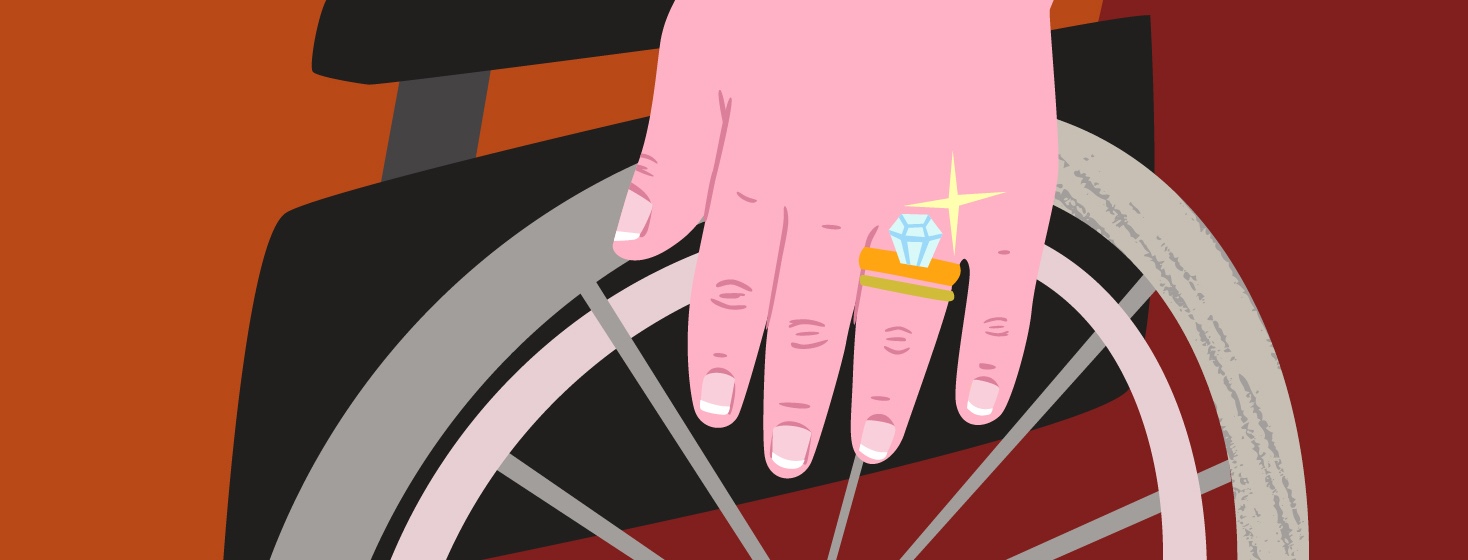An MG Marriage
My husband didn’t marry me when I was sick. He had no idea what was in store for his or our future when he got down on one knee and asked me to marry him. Up until my myasthenia gravis (MG) diagnosis, we had been a normal young couple flying by the seat of our pants.
We took spontaneous trips, went hiking, jogged, and worked out together. We hung out with friends and both worked full time jobs. It was easy.
Our lives changed overnight
Fast forward 5 years later. I had symptoms that neither one of us could understand. I couldn’t wrap my head around what was happening to my body. Why it felt like my mind was doing one thing and my body was doing the opposite. If I didn’t understand, I can’t even imagine what it was like for him watching me.
The only thing we both knew for certain was that our lives had completely changed overnight. Besides doing our best to be good parents, it felt like our lives took a giant pause. A pause that lasted a few years in fact. We traded vacations for trips to the doctor and frequent hospital stays.
We traded drinking with friends on the weekend to navigating through new medications and their awful side effects. Our life became a crazy roller coaster that we were both riding blindfolded, not knowing what to expect or what our future would hold.
Adjusting to the diagnosis
It took us quite a while to get into our groove again and realize that this wasn’t a death sentence for me, for our lives, and certainly not for our marriage. Those first few years were hard though. We were in survival mode. I was literally fighting for my life at times and fighting for the life we once had the rest of the time.
Some of the biggest challenges we faced as a couple during those first few years included our communication, our expectations, and feeling guilty for grieving because "at least I was still alive."
Open communication
We’ve always had great communication but when you’re thrown a huge curve ball like an MG diagnosis, it can be difficult to express how you really feel. I did my best to allow my husband to speak freely about the things that were frustrating to him and what made him mad or sad about this new diagnosis.
I listened and allowed space for him to express those feelings without taking it personally. That was extremely important because I had to understand that although he wasn’t the one with the disease, his life was (and is) affected in every way possible now too.
Not only that, but I had to understand that I didn’t ask for this disease and that it’s not my fault, so the negative feelings he may have are also not my fault.
Setting expectations
The next challenge we had as a couple were the expectations. It’s weird to go from being one person to an entirely different person so quickly and we both expected me to be the same, especially when I looked the same. We were also used to a certain lifestyle that my body could no longer keep up with.
I did my best to try to be the same person I used to be, but keeping up meant that I would pay for it later. My health would suffer which meant my husband and children suffered too. That didn’t serve any of us, so I had to learn when to ask for help and communicate when I couldn’t do something. I couldn’t just expect that he knew when I was overdoing it or when I wasn’t feeling well.
Grieving our old life
The last thing that I think has helped our marriage is allowing ourselves to grieve our old life and what could have been. Our life looks a lot different than we thought it would. What’s the saying? "Life is what happens when you’re busy making other plans."
While I believe nobody’s life turns out exactly how they thought it would, a diagnosis for a rare and incurable disease is a bit different. After confirming MG, we were caught up for a long time trying to merely survive that we never actually took a step back to mourn the loss of those ideas and dreams and visions we had of our future.
Now that’s not to say that we don’t have an incredible life, because we do, but we’ve had to make a lot more sacrifices and have had a lot more roadblocks to get here.
In it together
Navigating an MG diagnosis can feel lonely and isolating. You feel like no one can possibly understand. But having someone in your life who will support you and try their best to learn alongside of you can make a huge difference in how sick or how well you are.
For me, it just took communication, letting go of those expectations, and allowing ourselves to feel every emotion as we felt it without the guilt, together.

Join the conversation